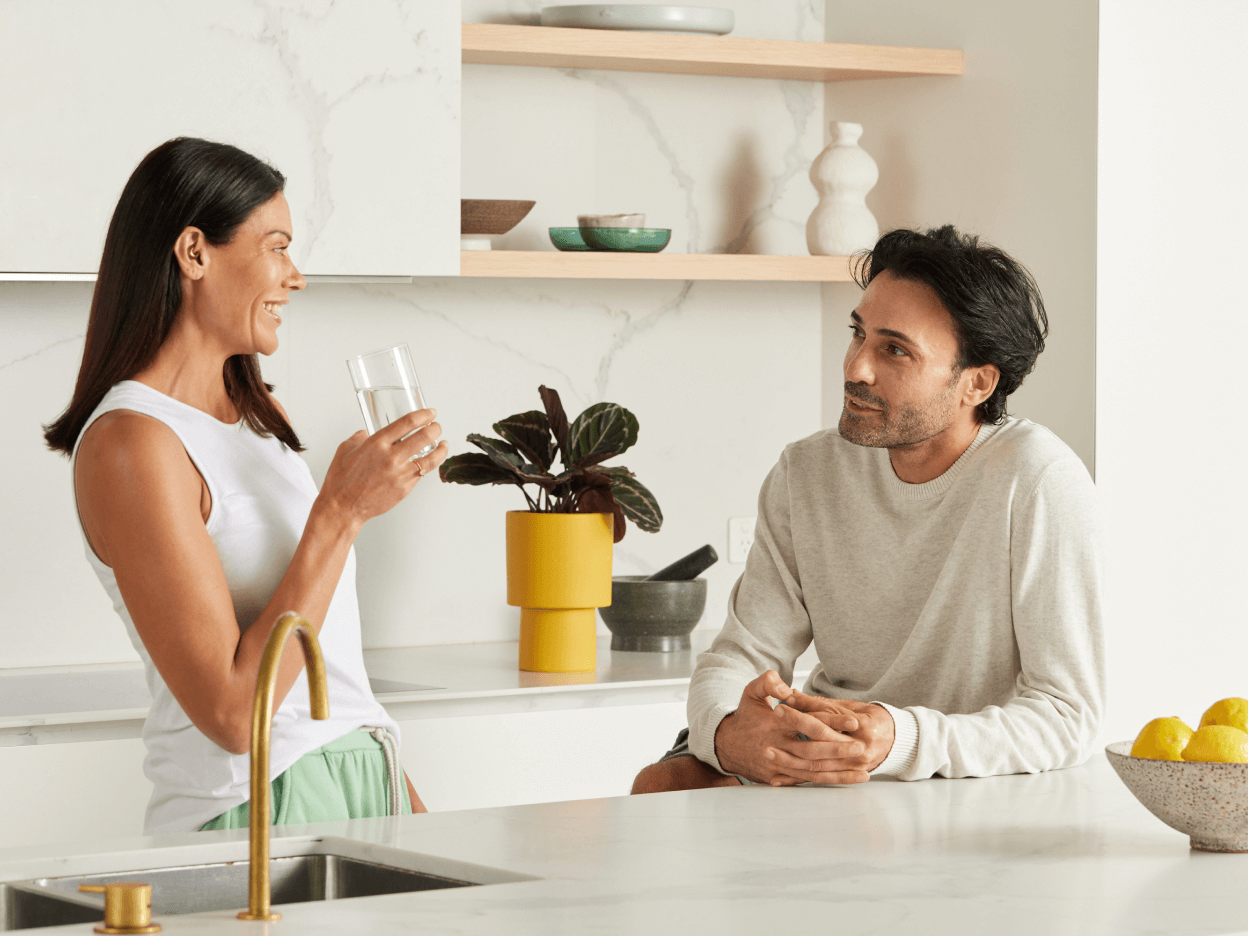Depression is more common than you think – it affects one in five Australians, as found in a 2021 study.[1] If you or someone you care about is experiencing an episode of intensely low moods, or you may have searched ‘What are the symptoms of depression?’ remember that support is available.
Clinical depression is a treatable disorder, and can affect how a person feels, thinks, and behaves. If left neglected, it can cause severe emotional and physical problems that can ultimately affect your ability to function on a day-to-day basis.
At Mosh, our telehealth platform connects you with a network of registered doctors who can understand what you’re going through and can help you seek support.
The symptoms of depression can be complex, and everyone may experience depression differently. If you’re depressed, you may feel sad and hopeless and lose interest in things you used to enjoy. Essentially, depression can exhibit itself differently from person to person; someone might exhibit more psychological symptoms than another, who might exhibit more physical symptoms.
We compiled a list of different symptoms that you may experience if you’re depressed.[2]
The physical symptoms of depression may include:
- unexplained aches and pains
- lack of energy
- difficulty in sleeping and waking up
- churning stomach
The behavioral symptoms of depression may include:
- avoiding contact with friends
- taking part in fewer social activities
- loss of interest in your hobbies and interests
- having difficulties in your home, work or relationships
- moving or speaking more slowly than usual
- low sex drive or loss of libido
The psychological symptoms of depression may include:
- continuous low mood or sadness
- feeling hopeless and helpless
- having low self-esteem
- feeling guilt-ridden
- feeling irritable and intolerant of others
- having no motivation or interest in things
- finding it difficult to make decisions
- not getting any enjoyment out of life
- feeling anxious
- having suicidal thoughts or ideation of self-harm
If you happen to experience a number of these symptoms intensely for two weeks or more, we encourage you to seek help, and your doctor may be a good place to start.
At Mosh, our telehealth platform can help you connect with AHPRA-registered doctors who can listen to what you’re going through. If necessary, they can prescribe a treatment plan tailored to your specific needs.
While it may be convenient to search ‘What are the symptoms of depression?’ online to learn about the different symptoms of depression, physical or otherwise, we do not recommend self-diagnosing.[3] Instead, we recommend seeking professional support from doctors.
If you’re searching for ‘What are the symptoms of depression?’ online and recognise symptoms in yourself or others, it may be time to consult a doctor.
Your doctor will assess your mental health by talking with you or asking you questions and performing a physical examination. This will allow your doctor to differentiate between psychological and physical health issues.[4]
Your doctor will want to know if you are experiencing any of the symptoms above and if you have a family history of mental illness – this may assist with your diagnosis. Your answers will help your doctor determine whether a mental health specialist, such as a psychologist, counsellor, or psychiatrist, might benefit you.[5]
You can do this with your regular doctor in person or alternatively use a service like Mosh. After you consult with our doctors at Mosh, you may be recommended a personalised treatment plan if deemed suitable for your situation. It can include therapy, prescription medication, or both.
If you are recommended to go to therapy, we have numerous therapists available at Mosh – you can match with the one who’ll be the right fit for you and your concerns. Therapy sessions are one-on-one, confidential, and online, so you can be comfortable sharing your thoughts and experiences.
If you are prescribed medication, your medications and prescriptions can be delivered to you at your earliest convenience. You will need to check in with your Mosh doctor frequently. You can also book an appointment with your doctor as needed.
We will never force you to commit to any treatment plan you don’t want. If you want to talk to a different doctor or therapist, we can find one for you.
If you’re searching for ‘What are the symptoms of depression?’ you may also be wondering about the effects of depression and anxiety. Apart from the symptoms listed above, here are some other effects that you may experience:
- Physical symptoms. You may experience loss of appetite, weight loss or gain, or in the long term, malnutrition.[6]
- Anxiety may manifest in sleeping problems, lightheadedness[7], and digestive issues.[8]
- Cognitive changes. Individuals with depression may experience memory loss and slower reaction times.[9]
These effects may persist for extended periods or recurring episodes, and the degree of intensity of these may vary between individuals and episodes.[10] We encourage you to seek professional support if you experience any of the effects or symptoms for a prolonged period.
If you’re struggling to cope with some of the effects of depression or anxiety, here are some coping skills that may help – you can consult your doctor to find the one that is suited for you.[11]
- Your doctor or therapist might recommend self-help books or websites to help you express your emotions during your treatment.
- Journaling, as part of your treatment, may enhance your mood by allowing you to express your emotions.
- You may find it beneficial to join or learn more about mental health associations such as Mental Health Australia, Mental Health Foundation of Australia, and Beyond Blue.
- Learn how to de-stress and manage your stress. Meditation, muscle relaxation, and yoga are a few examples.
- Plan your day. Make a to-do list, use sticky notes as reminders, or use a planner to keep things organised.
At Mosh, we are committed to helping you get through difficult moments. Now is the time for action, not words, and for achieving results rather than dreaming about them. That is why we are here to help you address your concerns.
We’re committed to helping you get the results you’re after and delivering quality health services for all our Mosh patients. We will assist you with all your health concerns, including skincare, mental health, and sexual health, among others. If you have any questions, we are available Monday through Friday, 8.30 a.m. to 5.30 p.m. AEST.
If you’re wondering ‘What is anxiety?’, ‘What are the symptoms of depression?’ or even ‘How to deal with stress?’ you can talk to our Mosh doctors. You may even ask about where you can take a depression test and if it is advised for your concerns.
If you’ve been searching for ‘What does depression feel like?’ or ‘How to deal with depression?’ online, you may want to learn more about what is depression and how it can be treated. If you’re in crisis or experiencing suicidal thoughts, please call Lifeline support at 13 11 14.
Let’s talk and understand what you’re going through so we can help you through it.

